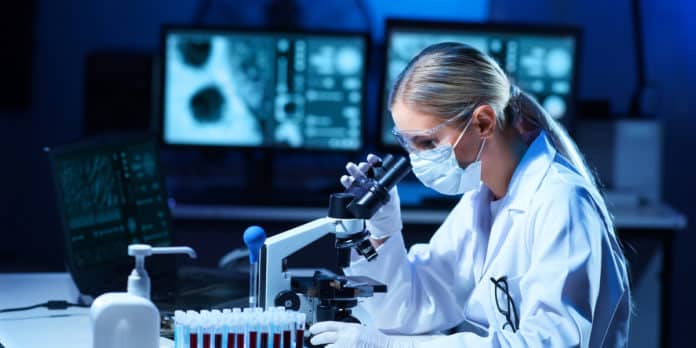Siemens Healthineers to Collaborate with CDC & EU’s JRC
on COVID-19 Research Project to Standardize SARS-CoV-2 Assays
In order to help standardize international antibody tests for COVID-19, the Centers for Disease Control and Prevention (CDC) and the EU’s Joint Research Centre (JRC) will begin working with Siemens Healthineers.
The research project includes defining the proper concentrations of antibodies mapped to the novel coronavirus’s specific proteins in the bloodstream. In determining correctly whether a person is immune to the disease, this could be used to establish the clinical threshold for the test used.
Standardization among manufactures will help in enabling benchmarking comparisons, regardless of the testing method, and also in helping measure the effectiveness of potential vaccines, and thereby, this standardization effort could impact global serology test manufacturers in an effort to improve long-term research into patients’ antibody levels.
Targeting antibodies linked to different proteins found on or in the novel coronavirus, the antibody diagnostics used currently differ on a basic level among test manufacturers. This includes the internal nucleocapsid protein that encases the virus’s RNA code, its subunits, and the receptor-binding domain and the infamous spike protein.
Additionally, each test maker typically checks their assay against their own internal standards instead of a common scientific reference, as the FDA’s rules direct companies to validate their own tests before submitting them to market or applying for emergency authorization.
Siemens’ research project with the CDC and the JRC aims to peg each viral protein and their associated antibodies to reach a specific concentration that would prevent the virus from entering cells and multiplying.
The president of laboratory diagnostics for Siemens Healthineers, Deepak Nath said, “We currently do not have an established process to determine immunity, which is one barrier to the antibody test adoption. Different levels of neutralization are produced by different SARS-CoV-2 antibody targets. Our R&D team recognized that you could create a common ground to standardize assays—not just on antibody production, but their ability to provide immunity if you could define a level at which neutralization is conferred for different targets.”
Rather than simply giving a positive or negative result, the FDA authorized its first tests from Siemens that were designed to measure more specific amounts of COVID-19 antibody activity in the blood in early August. The Siemens previous antibody diagnostics (offered under its Atellica and ADVIA Centaur labels) updated versions were granted with the new authorizations.
Amid high demand for COVID-19 testing of any kind in the early stages of the pandemic, having many inaccurate or substandard products flooding the market, antibody tests suffered under a crisis of confidence. Researchers from the University of Oxford had said in April that the necessary marks for mass screening efforts were not met by many antibody tests on the market.
Thereafter, the CDC, the FDA, and the National Institutes of Health have worked to independently validate antibody blood tests and have regularly published their performance results.
Source
Siemens Healthineers to Collaborate With CDC & EU’s JRC on COVID-19 Research Project



